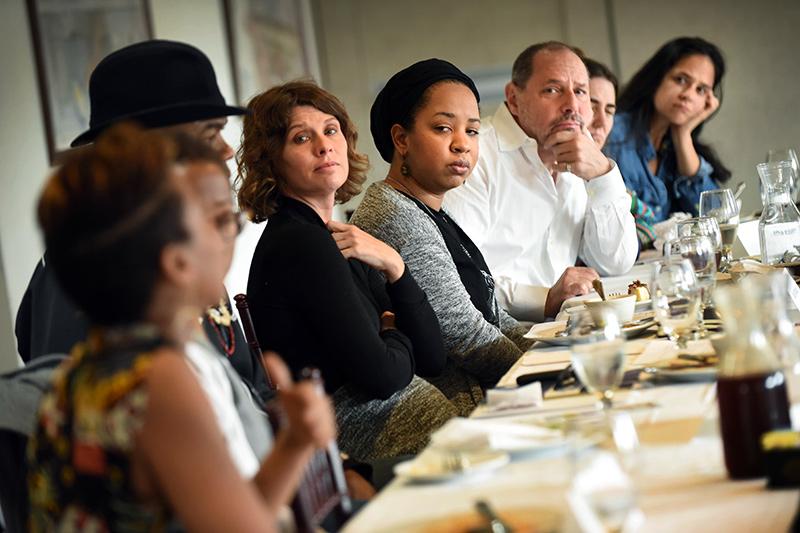Local artists, scholars and cultural leaders examine art’s role in shaping society
On Jan. 22, The American Academy of Arts and Sciences, in partnership with Joel Dinerstein of the Department of English and Rebecca Snedeker of the New Orleans Center for the Gulf South at Tulane University, convened a group of leading New Orleans-based artists, scholars and cultural leaders to discuss the vital role that the arts play in shaping society.
Paul Erickson, the academy’s program director for humanities, arts and culture, posed several questions to the group. What challenges are arts communities in New Orleans and the Gulf South facing? What roles does art play in life here? Are there challenges for artists and art organizations that are unique to this place? Several themes emerged and drove the conversation, including tensions surrounding preservation, commodification of culture in a tourist-driven economy, and artists’ free expression that subverts and shifts norms. Participants dug into how the city’s wealth and income disparity, history of colonization and racism, and population’s limited access to basic services like health care, adequate education and housing inform how and what art is manifest and surfaces to broader audiences.
“We discussed many challenges and considered them in relation to the sheer excellence and originality of performative, literary and visual work that emerges from this place from those who have been and are willing to stand in the heartbreak and beauty of this city and create original responses that change the very makeup of our world,” said Snedeker. “It’s wonderful that the academy is focusing on the role of the arts and traveling the country to listen.”
Founded in 1780, The American Academy of Arts and Sciences convenes leaders from the academic, business and government sectors to address crucial challenges facing our global society. Conversations about the arts have also taken place recently in St. Louis, New York, Washington, D.C. and Philadelphia, to name a few. The academy is considering creating a commission on the arts that would generate a report and propose policy changes.

